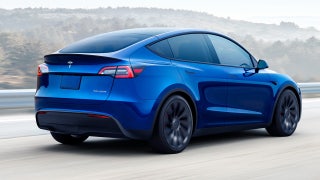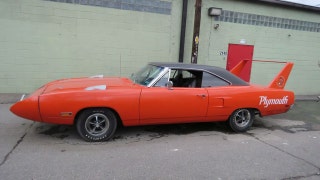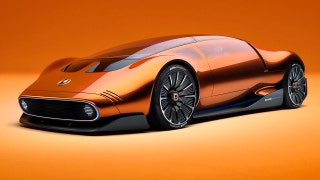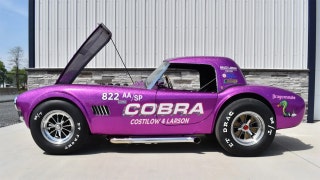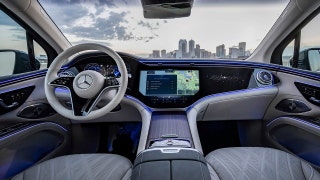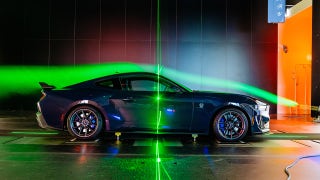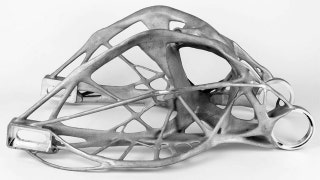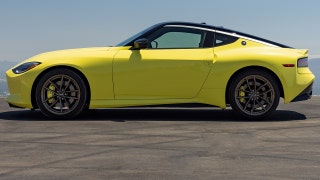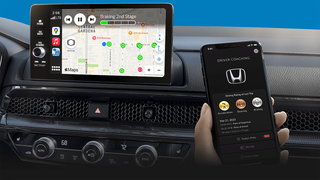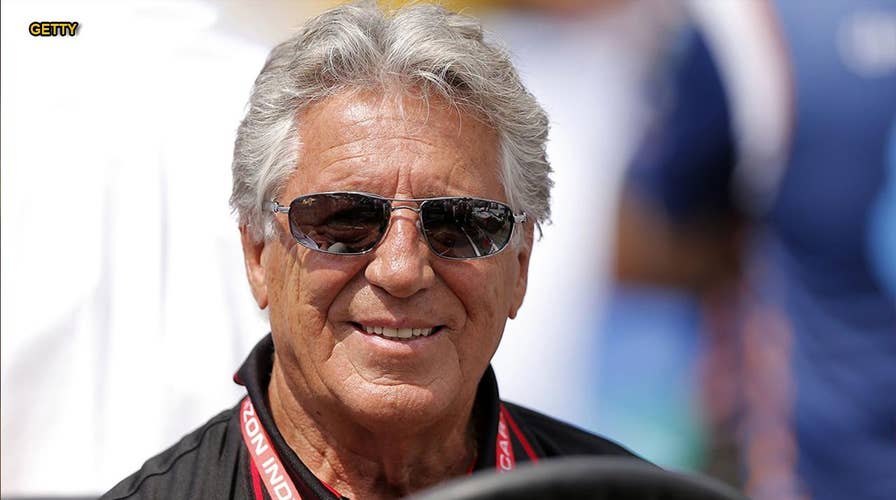Mario Andretti celebrates the 50th anniversary of his Indy 500 win
Mario Andretti spoke with Fox News Autos about the 50th anniversary of his Indy 500 win.
Mario Andretti became the Mario Andretti of legend on May 30, 1969.
That’s the day he won his first and only Indianapolis 500 in commanding fashion, defeating second-place Dan Gurney by nearly two laps.

(Getty Images)
He never took the checkered flag at The Brickyard again, but had an epic driving career that stretched into the 1990s. It included a Formula 1 championship in 1978 and over 100 major race wins across various disciplines that cemented his place as perhaps the greatest and most versatile racing driver of all time and turned his name into a synonym for speed.
He’s back in Indy this year, not to race, but to be honored on the 50th anniversary of that win. An amazing achievement that took place just 14 years after his family moved from an Italian refugee camp with $125 in their pockets to Pennsylvania, where he became a U.S. citizen in 1964.
Fox News Autos editor Gary Gastelu spoke with the 79-year-old about the race and what the anniversary means to him.
GG: How well do you remember the 1969 race?
MA: You’d be surprised. I recollect a lot of my events, and a race like this one had so much going for it, because you want to put this one under your belt as soon as you can. Especially for my team owner, Andy Granatelli. He didn't care about championships, winning the Indy 500 meant everything to him.

(Getty Images)
GG: It wasn't easy, you had plenty of issues during the race. Was there a moment when you thought, “this isn’t going to end well?”
MA: I thought about that after seven or eight laps. All of a sudden I’m looking at my temperatures and the oil temp was unbelievable, right up in the 260-270 degree range, and I figured, there’s no way. I was leading the race at that point and I backed off a little bit and let A.J. Foyt and Roger McCLuskey go by me. Then I hung in there in third place and figured we’ll just keep going. And it kept going and going and then I took the lead and backed off a little bit again and started going back and forth with Lloyd Ruby. I felt that I had the measure of him and then it worked out because he dropped out and my baby kept going, much to my surprise.
GG: You had a huge lead at the end, but how did those closing laps play out for you in the car?
MA: At the end, you’re just trying to bring it home and I was hearing things. There were a lot of issues with my drivetrain. Jim McGee, my chief mechanic, said when they pulled the gearbox apart after the race everything was all dried up from overheating. The oil was carbonizing everything and the bearings were pretty much gone. So that’s what I was feeling, the real roughness of the drivetrain and I didn’t know what it was, but I knew it wasn’t right. But it was my day. Not without any sense of anxiety, I can tell you that.

(Getty Images)
GG: Of all your victories, is the Indy 500 the one that means the most to you?
MA: It is and it isn’t. Unfortunately, your career is judged by that race, which is unfair to the drivers that were capable and never won it. The Italian Grand Prix was special for me, too. But Indy has that aura about it, that tradition. Winning Indy, it seems like everyone remembers that. Every day, when I go to a racetrack or even an airport everyone wants to talk about it, but that’s not the only race that I won. But it’s got that value. When I crossed the finish line, I had that huge weight lifted off my shoulders.
In 2018 they celebrated the 40th anniversary of my Formula 1 championship, but it was nothing like the celebration they have for me in Indy this year. What Indianapolis is doing for me is humbling. It’s amazing what they have planned with an exhibit at the [Indianapolis Motor Speedway] museum and the other things around town [including renaming a downtown street after him for the month of May]. I’m over the moon about it. I never thought it would happen in my career, not 50 years later.
GG: If you hadn't emigrated to America do you think you ever would've been a professional racecar driver, let alone one of the greatest of all time?
MA: There's no way. No way in the world that the opportunities would have been there. Not one chance. And that's why I count my blessings every day for everything that happened to me in my life. You know, every negative became a positive and every potential negative became a positive. I truly, truly, truly, truly can claim the American dream. Absolutely.

GG: You’re one of the most famous racecar drivers of all time, but specifically because you won that Indy 500 you’re also one of the most famous people in history, period. Even with the rest of your successes, do you ever think how much different your life could have been had you not gotten that one win?
MA: No question. I mean it's a lot of things would have been different. There’s no question about this. The fact that that one event can make a big difference. You know for me so many times you know we look back and figure “what if it didn't happen?” Things would have been definitely different, and probably not as good.
GG: Has being as famous as you are ever been a burden, or is it something you enjoy?
MA: Oh, hell no. No burden. Are you kidding? No, it’s a great life. It's a blessing in every way. Many times you feel that probably some privacy is taken away and all that, but you know that's not a bad price to pay. If people care, that means that something I did was meaningful and it’s the highest compliment. You know if people express themselves when they see you and compliment you about your work and all of that, nothing better than that could come your way.

(Getty Images)
GG: You’re not racing anymore, but you’re still driving. Giving thrill rides at Indianapolis and other tracks in a specially designed two-seat Indycar. How fast does that thing go?
MA: The day after race day we guarantee over 200 mph. I have 33 rides to give and guarantee you over 200 mph. Oh boy. We get on with it!
FOLLOW FOX NEWS AUTOS ON FACEBOOK FOR MORE RACING NEWS
This interview has been edited and condensed
